Directory
- Share
Camille Cole
- Alumni
- United States
- 2012 MPhil Historical Studies
- Trinity Hall
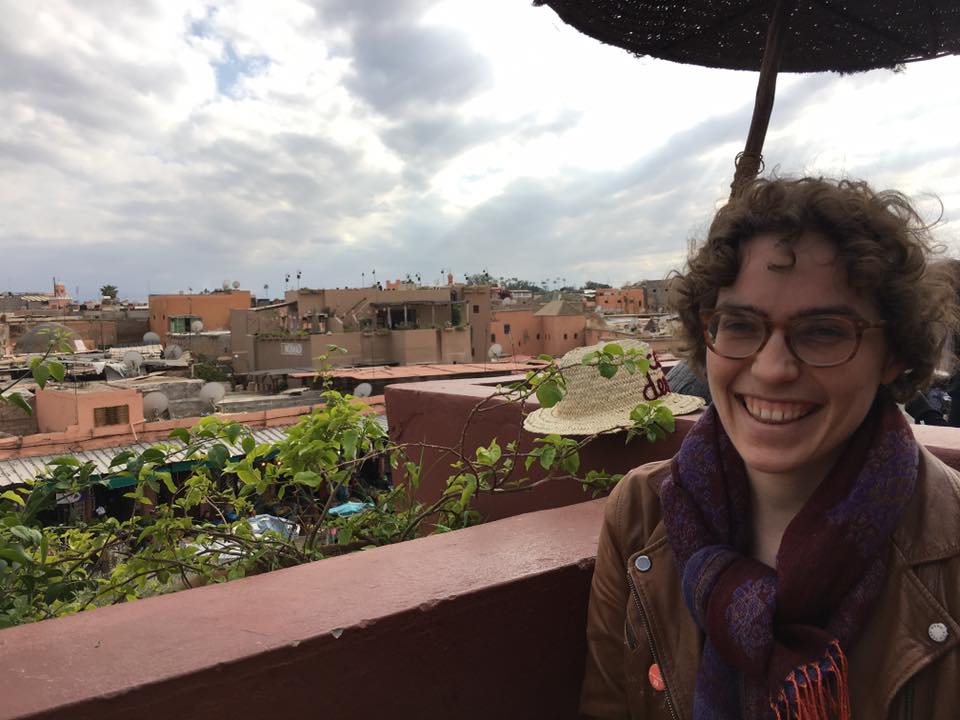
Camille Cole
- Alumni
- United States
- 2012 MPhil Historical Studies
- Trinity Hall
After completing my MPhil at Cambridge, I received a PhD in history from Yale University. My dissertation, "Empire on Edge: Land, Law and Capital in Gilded Age Basra," looked at the accumulation strategies of elites in a changing legal and geopolitical context between the Ottoman, Qajar, and British Indian states. I have since returned to Cambridge for a JRF at Jesus College (2020-2023) where I am working on a project on the transnational history of concessions, and on turning my dissertation into a book manuscript.
Yasemin Cole
- Alumni
- United States
- 2020 PhD Medical Science @ CIMR
- Darwin College
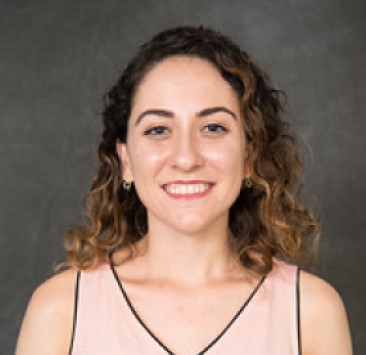
Yasemin Cole
- Alumni
- United States
- 2020 PhD Medical Science @ CIMR
- Darwin College
As an undergraduate researcher at UNC at Chapel Hill and NIH, I gained a broad understanding of biological mechanisms underlying disease, especially cancer. My experiences while designing an undergraduate course, research work, and clinical volunteering sparked my interest in genomics and precision medicine. My coursework and clinical experiences during my master's in genomic medicine at Imperial College London demonstrated to me the potential of precision medicine to revolutionize healthcare. As an MD/PhD student, I will study the genomic landscape of paragangliomas, pheochromocytomas, and gastrointestinal stromal tumors at the NIH and the University of Cambridge. Through metabolic, epigenetic, and functional genomic studies, I hope to elucidate the biological underpinnings of these devastating neuroendocrine tumors, leading to advancements in prognostication and treatment. Outside the lab, I will continue my involvement in scientific outreach/education and refugee health. I am honored to be part of the multidisciplinary and collaborative Gates Cambridge community seeking to improve global society. As a future physician-scientist, I aspire to translate scientific advancements into precision medicine diagnostics and therapeutics.
Previous Education
University of North Carolina Medicine 2026
Imperial College London (University of London) Genomic Medicine 2017
The University of North Carolina at Chapel Hill Biology 2016
Marcus Colla
- Alumni
- Australia
- 2015 PhD History
- King's College
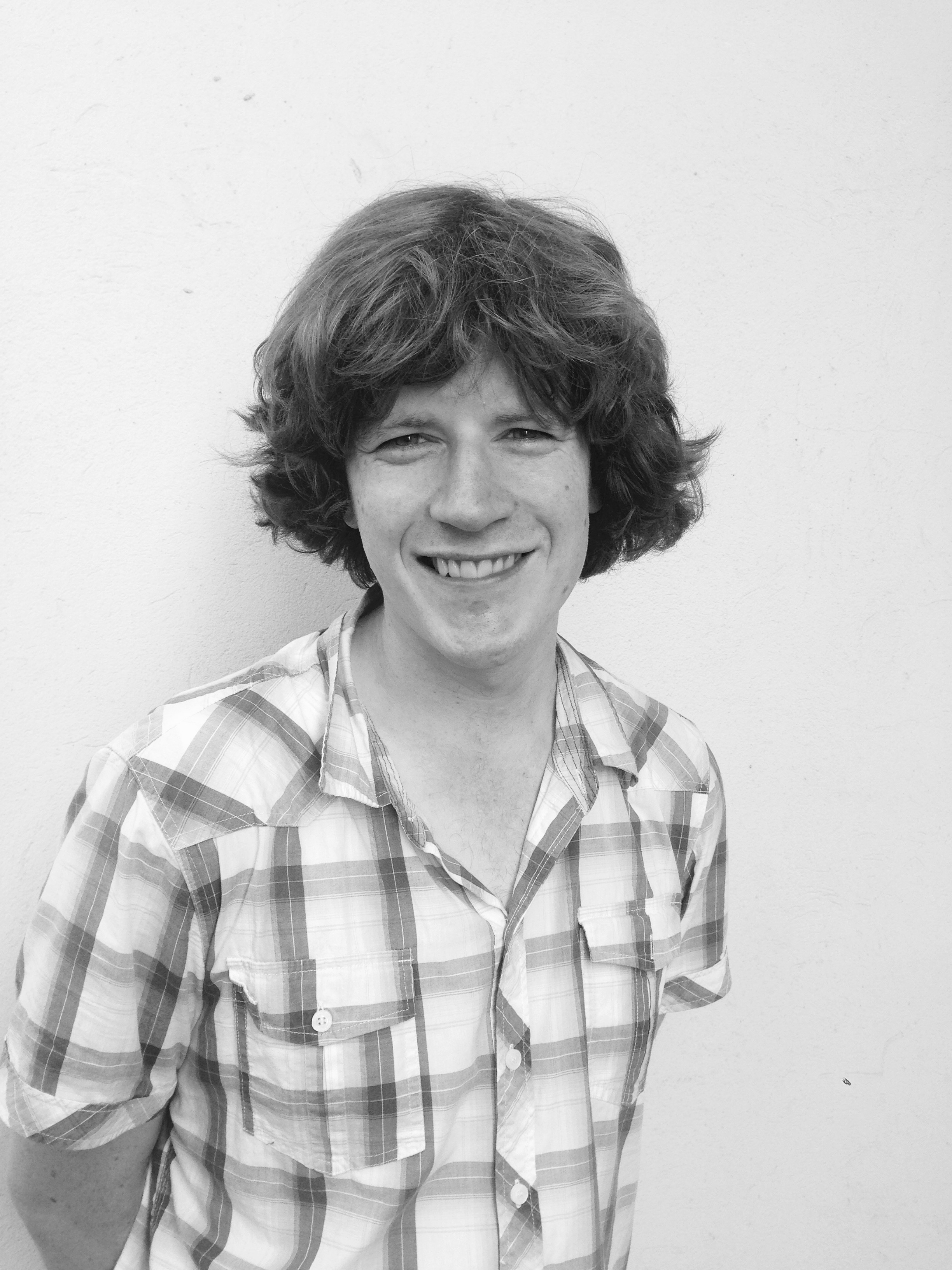
Marcus Colla
- Alumni
- Australia
- 2015 PhD History
- King's College
I completed my PhD in History in 2019, and after two years working as a Departmental Lecturer in Modern European History at Christ Church, University of Oxford, I am now a Junior Research Fellow at Pembroke College, Cambridge. My first monograph is appearing with Oxford University Press later in 2022 (see https://global.oup.com/academic/product/prussia-in-the-historical-culture-of-the-german-democratic-republic-9780192865908?lang=en&cc=no)
Ria Collingwood
- Alumni
- Trinidad and Tobago
- 2007 MPhil International Relations
- Queens' College

Ria Collingwood
- Alumni
- Trinidad and Tobago
- 2007 MPhil International Relations
- Queens' College
At the University of Cambridge, I will pursue a MPhil in International Relations. My research will focus on the African Union (AU) 6th Region Diaspora Initiative which seeks to foster economic and socio-political relationships between Africa and the African Diaspora. More specifically, I am interested in the potentialities and limitations of invoking Pan Africanism as a means of achieving regional development throughout the African continent. In addition, I seek to understand the ways in which regional institutions such as the AU promote or challenge normative assumptions of the nation-state. I am confident that Cambridge University will provide me with the necessary academic mentorship and theoretical framework to pursue meaningful research. As a Gates Scholar and Cambridge graduate, I hope to provide consultation on regional and developmental projects within Africa and the Caribbean.
Sean Collins
- Alumni
- United States
- 2012 PhD Materials Science
- Trinity College
Sean Collins
- Alumni
- United States
- 2012 PhD Materials Science
- Trinity College
In 2012, I completed a dual degree program at the University of Michigan in chemistry and piano performance. While at Michigan, I led research in the preparation of nanostructured semiconductor films for solar energy conversion applications. I have also worked on projects developing new processing methods for semiconductor purification. Since graduating, I have worked at the National Institute of Standards and Technology (USA), conducting research on the role of atmospheric aerosols in climate change. I am currently working on my PhD in Materials Science and Metallurgy at Cambridge with a focus on electron microscopy and spectroscopy. By visualizing materials and their properties at length scales approaching individual atoms my work serves to understand fundamental properties of light-matter interactions. These fundamental relationships underpin advances in a variety of technology areas from chemical and biological sensing to information technology applications. Throughout my career, I hope to lead research aimed at understanding the chemistry and physics of materials in climate science and renewable energy.
Adam Comer
- Alumni
- United States
- 2009 PhD Engineering
- Churchill College

Adam Comer
- Alumni
- United States
- 2009 PhD Engineering
- Churchill College
In hopes of performing meaningful research on the efficient and responsible use of energy, I am pursuing a PhD in engineering with a focus on the optimization of fuel injectors in gas turbine engines. The ultimate goal is the minimization of the environmental impact of gas turbine combustion and the maximization of fuel efficiency. More specifically, I am analyzing liquid fuel injectors for aero-engine applications. This optimization problem is complicated by a number of design trade-offs and the computationally expensive simulations required for an accurate assessment of a given design's performance. Combining empirical and analytical tools with computational fluid dynamics conducted at varying degrees of spatial and temporal resolution, I aspire to develop an automated, multi-fidelity approach for fuel injector design. Furthermore, this project will provide some insight into the influence of injector design parameters on overall combustor performance.
Margaret Comer
- Alumni
- United States
- 2015 PhD Archaeology
- Jesus College
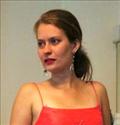
Margaret Comer
- Alumni
- United States
- 2015 PhD Archaeology
- Jesus College
My research focuses on the heritage of mass repression, Soviet and post-Soviet memorialization and heritagization, grievability and memory, and contested memory. I am specifically interested in how post-repression societies variously portray suffering, loss, perpetration, and victimhood at sites associated with mass violence. The overarching goal is to analyze how the heritage of past violence can be instrumentalized in order to avoid reckoning with past violence and, further, how this heritage can be weaponized in order to further contemporary violence. My research interests also include preservation and tourism at sites of mass repression, materiality and memorialization, and heritage and climate change. My doctoral dissertation title was 'The Heritage of Repression: Memory, Commemoration, and Politics in Post-Soviet Russia'. It focused on changing patterns of commemoration and memorialization of Soviet repression at sites in Russia connected to the former gulag system and Great Terror, with a special focus on concepts of 'grievability' (as conceived by Judith Butler) and my complementary concept of 'blameability'. It also introduced a theoretical model for categorizing and thinking through heritage sites' representations of victims and perpetrators.
Previous Education
University of Cambridge
University of California, Berkeley
Annalijn Conklin
- Alumni
- Canada
- 2011 PhD Medical Science @ MRC Epidemiology Unit
- Trinity Hall

Annalijn Conklin
- Alumni
- Canada
- 2011 PhD Medical Science @ MRC Epidemiology Unit
- Trinity Hall
My phd in epidemiology will focus on patterns of individual dietary ‘lifestyle choices’ and how these are influenced by multiple social determinants, particularly the contribution of the physical environment. After migrating to many cities since growing up in a small town near canada’s point pelee national park in south-western ontario, I am thrilled to be studying in cambridge with the support of a Gates Scholarship. Since completing a Master’s in Life Sciences (Edinburgh) and a Master’s in Public Health (Columbia), I have worked as a health policy analyst at Rand Europe, a not-for-profit research organisation. My goal is to develop a career in the intersection of academia and policy, working closely with communities and governments to support the translation of research evidence into preventive action for tackling disparities in population health and well-being.
David Conlon
- Alumni
- Ireland
- 2003 CASM Mathematics
- St John's College

David Conlon
- Alumni
- Ireland
- 2003 CASM Mathematics
- St John's College
Joshua Cook
- Alumni
- United States
- 2008 MPhil Medical Sciences (Clinical Biochemistry)
- Clare College

Joshua Cook
- Alumni
- United States
- 2008 MPhil Medical Sciences (Clinical Biochemistry)
- Clare College
I am a proud New Jerseyan by birth and rearing. I earned my B.A. at the University of Pennsylvania where I got my start in my now career-long focus on insulin and its actions in the lab of Dr. Bryan Wolf. Thereafter I came to Cambridge as a Gates Scholar. I earned my M.Phil. in Clinical Biochemistry as a member of Clare College at the Institute of Metabolic Science under Dr. Robert Semple by modeling syndromes of severe insulin resistance in cell culture models. I next continued my research on insulin resistance in the lab of Dr. Domenico Accili at Columbia University in New York, where I graduated from the M.D./Ph.D. program in 2016. I have since stayed on at Columbia to complete my residency in internal medicine and fellowship in endocrinology. I am currently Assistant Professor of Medicine within the Division of Endocrinology, Diabetes & Metabolism at Columbia University Medical Center. I am the leader of a research group studying the role of insulin in hepatic lipid metabolism in human subjects.
Previous Education
University of Pennsylvania BA, Biology 2008
Julie Cooke
- Alumni
- United States
- 2001 LLM Law
- Magdalene College

Julie Cooke
- Alumni
- United States
- 2001 LLM Law
- Magdalene College
Julie is an attorney at Farallon Capital Management, an institutional asset management firm based in San Francisco, California. At Farallon, among other things, she designed and implemented a fossil--fuel filter, the first to be applied to a multi-strategy hedge fund. Julie joined Farallon in 2007 after working as a corporate associate at Morrison & Foerster, also in San Francisco. Her work there included assessing a proposal for Sudan-related divestment by a large university. Julie obtained an LL.M. from the University of Cambridge in 2002, where she wrote a thesis on the use of referendums. Julie has a J.D. from Columbia University Law School and a B.A. with honors in Economics and English from Duke University.
Tara Cookson
- Alumni
- Canada
- 2011 PhD Geography
- Wolfson College
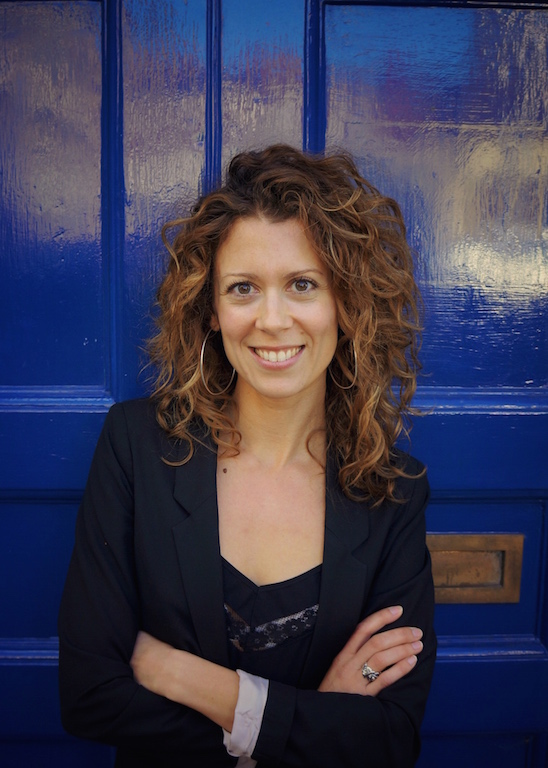
Tara Cookson
- Alumni
- Canada
- 2011 PhD Geography
- Wolfson College
Tara Patricia Cookson is a Canada Research Chair and Assistant Professor of Gender, Development and Global Public Policy at the University of British Columbia's School of Public Policy and Global Affairs, and the cofounder of Ladysmith, a feminist research consultancy that helps international organizations collect, analyze and take action on gender data. In her role at Ladysmith she has led evidence-driven projects for UN Women, UNICEF, the International Labour Organization, Global Affairs Canada, the United States Agency for International Development (USAID), the Organization for Economic Cooperation and Development (OECD), and Facebook, among others. She is also author of the award winning book Unjust Conditions: Women's Work and the Hidden Cost of Cash Transfer Programs, based on the research she conducted while a Gates Cambridge Scholar and member of Wolfson College at the University of Cambridge (2011-2015).
Links
https://ladysmithcollective.com
https://sppga.ubc.ca/profile/tara-cookson
https://www.linkedin.com/in/taracookson
Sarah Cooley
- Alumni
- United States
- 2015 MPhil Polar Studies
- St Edmund's College

Sarah Cooley
- Alumni
- United States
- 2015 MPhil Polar Studies
- St Edmund's College
During my undergraduate studies in geophysics at the University of North Carolina at Chapel Hill, I developed a fascination with glaciers and the Arctic, a passion that has taken me to Alaska, British Columbia, Greenland and Iceland. My research has focused on glaciology and Arctic hydrology, including studying surface strain rates on the Taku Glacier in Southeast Alaska through the Juneau Icefield Research Program and examining trends in the timing of Siberian river ice breakup using satellite imagery in UNC’s Global Hydrology Lab. After visiting the Greenland Ice Sheet in 2013, I became particularly interested in studying the dramatic retreat of Greenland’s large outlet glaciers and the complex processes that govern their flow. At Cambridge, I will pursue my MPhil in Polar Studies at the Scott Polar Research Institute, where I will focus on researching feedbacks between basal hydrology and flow in tidewater glaciers in West Greenland. Through the use of mathematical modeling of glacier flow, I seek to better understand how Greenland’s glaciers are responding to climate warming as part of efforts to improve sea level rise predictions. I am honored and excited to join the diverse Gates Cambridge community and to engage in the groundbreaking polar research and outreach at the Scott Polar Research Institute.
Previous Education
University of North Carolina
Jessica Cooney
- Alumni
- United States
- 2009 PhD Archaeology
- St John's College
Jessica Cooney
- Alumni
- United States
- 2009 PhD Archaeology
- St John's College
During my time at Cambridge I researched children in the Upper Palaeolithic. I looked at art, especially finger flutings done in France and Spain to determine the ages and biological sex of the artists. Hopefully this will also lead to a better understanding of children's lives in the Upper Palaeolithic. I am also very interested and active in archaeological outreach for youths, hoping to foster their interest in the past.
I currently live in Wiltshire, UK, and work for English Heritage as a curator, hoping to inspire people to learn more about the past and preserve heritage.
Previous Education
University of York MSc, Early Prehistory 2008
Columbia University B.A., Ancient Studies 2007
Laura Cooper
- Alumni
- United States
- 2015 MPhil Veterinary Science
- Homerton College
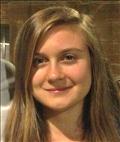
Laura Cooper
- Alumni
- United States
- 2015 MPhil Veterinary Science
- Homerton College
I am broadly interested in using ecological and mathematical approaches to answer questions in infectious disease epidemiology. I did my masters and PhD in Dr. Caroline Trotter’s group in the Disease Dynamics Unit at Cambridge, where I applied mathematical modelling techniques and traditional epidemiological analysis to better understand and reduce the burden of meningitis in the African meningitis belt. In 2019 I joined the Vaccine Epidemiology Research Group led by Professor Nick Grassly at Imperial College, where I study the epidemiology of vaccine-derived polioviruses.
Previous Education
Princeton University
Links
https://www.imperial.ac.uk/people/l.cooper
https://www.linkedin.com/in/lvcooper
Una Corbett
- Scholar-elect
- United States
- 2025 MPhil Public Policy
- Jesus College
Una Corbett
- Scholar-elect
- United States
- 2025 MPhil Public Policy
- Jesus College
My academic training in History and Literature as an undergraduate at Harvard motivated me to pursue a career in government, helping to craft policies that address historically embedded social inequality. This drive has led me to work on the Biden-Harris campaign and transition team, serve as Confidential Assistant to Secretary Miguel Cardona at the U.S. Department of Education, and do research and communications work for the Governor of California. I have also spent a year in Sydney, Australia as a Fulbright Scholar researching gender and higher education policy. I am excited to pursue an MPhil in Public Policy at Cambridge as a Gates-Cambridge Scholar. I hope to develop research expertise and international perspective that will help me pursue a career in policy development and implementation, particularly focused on housing and education.
Previous Education
Harvard University History and Literature
Western Sydney University Policy and History
Rodrigo Córdova Rosado
- Alumni
- United States
- 2019 MPhil Archaeology
- Sidney Sussex College
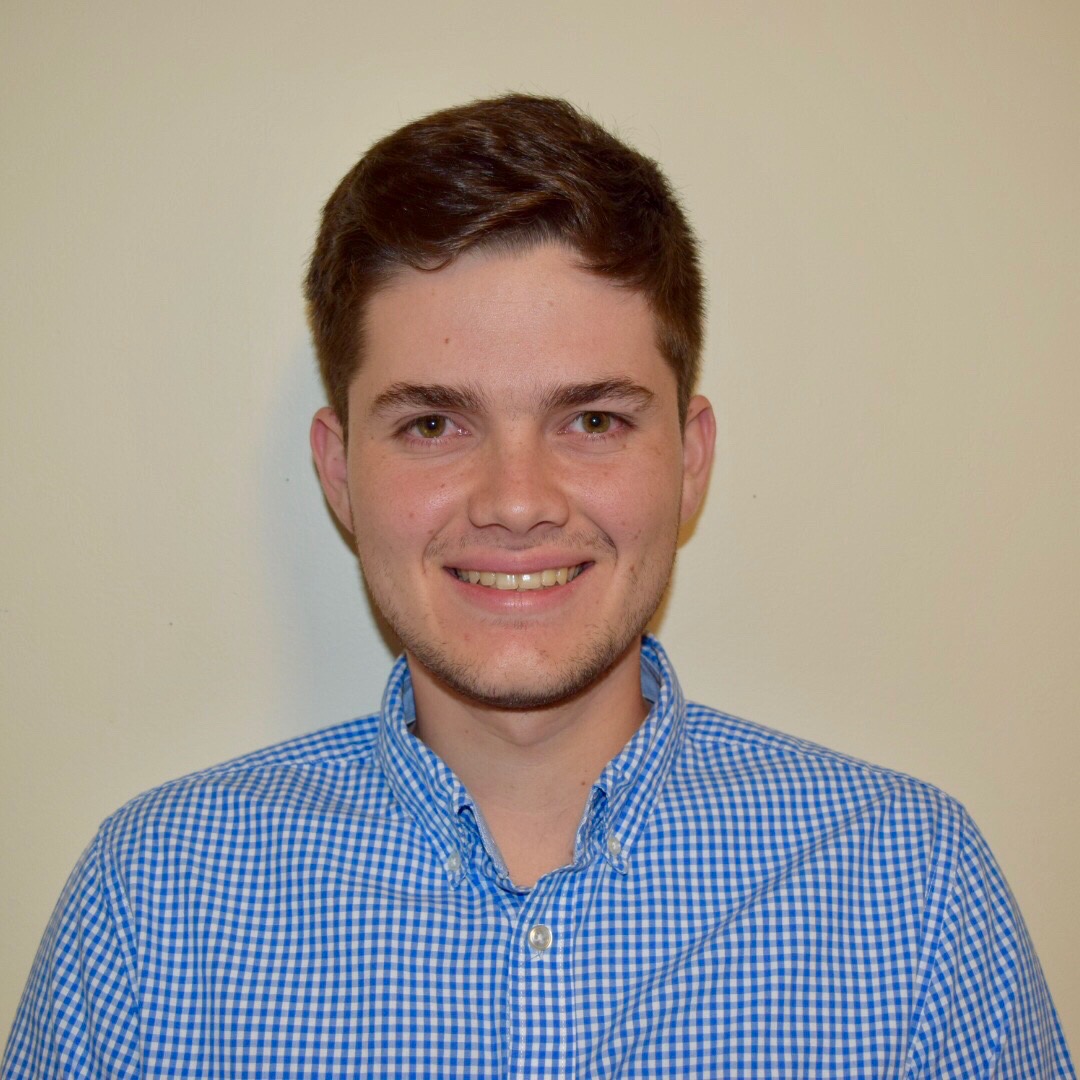
Rodrigo Córdova Rosado
- Alumni
- United States
- 2019 MPhil Archaeology
- Sidney Sussex College
I grew up in San Juan, Puerto Rico, spending my weekends camping on mountaintops and coastlines, with my amazing parents, little brother, and friends, staring up at the starry night next to a warm fire. I always yearned to learn more about the night sky, a path that eventually led me to my undergraduate study of Astrophysics at Harvard University. I have researched several aspects of observational cosmology, the study and measurement of the earliest signals from the universe, and what they tell us about how the universe began, and its eventual fate. I have often partnered with several organizations to create outreach programs in which we teach young students, both in Boston and Puerto Rico, about the cosmic and human past, hoping to instill intellectual curiosity and empower them to pursue their passions. At the same time, I strove to understand humanity’s more immediate past by completing a secondary field in Archaeology, inspired by the questions I held concerning who had previously stared at the stars from those same coastlines in Puerto Rico. Embarking on an MPhil in Archeology of the Americas, with a focus on Archeoastronomy, I hope to illuminate the deep astronomical traditions of Ancient American peoples, and how these help inform our own conception of the universe, our history, and ourselves.
Previous Education
Harvard University Bachelor of Arts (A.B.) Astrophysics - Physics 2019
Claudia Cornelissen
- Scholar
- Belgium
- 2021 PhD English
- St John's College
Claudia Cornelissen
- Scholar
- Belgium
- 2021 PhD English
- St John's College
I have a profound belief in the transformative potential of literature, and as a Gates scholar I will be researching literature’s ability to both reflect and evoke societal change. I was born and raised in Belgium, but my love for literature took me to the University of Cambridge, where I first became acquainted with feminist literary theory. As a master’s student in Gender at the London School of Economics, I researched the role of narrative in the #MeToo movement and gained a lasting interest in the politics and ethics of representation. My doctoral research will focus on feminist revisionist literature, the genre in which contemporary authors subvert, adapt, or otherwise engage with canonical texts in order to highlight female voice and subjectivity. Through my work, I hope not only to shed light on a popular strand of contemporary women’s writing, but also to research the epistemic function of this literature, as I believe that the stories we tell affect what our social, cultural, and political movements can achieve. I am very honoured to be joining the Gates Cambridge community, and I am looking forward to learning from and collaborating with like-minded scholars.
Previous Education
Katholieke Universiteit Leuven Western Literature 2021
London School of Economics & Political Science Gender 2020
University of Cambridge English 2018








